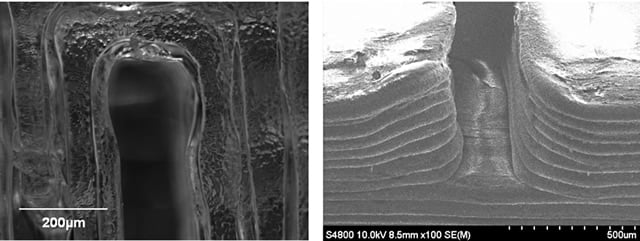
Detection strategies based on nanowire offer a promising new route towards rapidly detecting diseases such as cancer. I recently reported on the successfully integration of 3D printed components with nanosensor technology in the medical journal, Point-of-Care. The article had the catchy title, “Fabrication of an integrated 3D printed polymer SiNW-based microfluidic point of care system for detecting 8-OHdG cancer biomarker”.
The fabrication of 200µm width active flow micro-channels by 3D printing methods is an essential component that enables the examination of micro-litre quantities of bodily fluid in non-invasive diagnostic devices. By flexographically printing metal contacts onto 3D printed devices, we were able to subsequently integrate it with a nanosensor chip.
The silicon nanowire-based nanosensor combined to the device was functionalised with 8-hydroxydeoxyguanosine (8-OHdG) antibodies that are used to detect oxidative stress biomarkers linked to the presence of several common cancers. A biomarker is an indicator of a biological state of disease, so they can be used to monitor or recognise disruption or alterations in normal cellular processes. This research fabricated and tested the 3D printed microchannel-based device to detect the presence of 8-OHdG biomarkers, which can be used to indicate the early presence of a range of different cancers.
Read more at ENGINEERING.com

